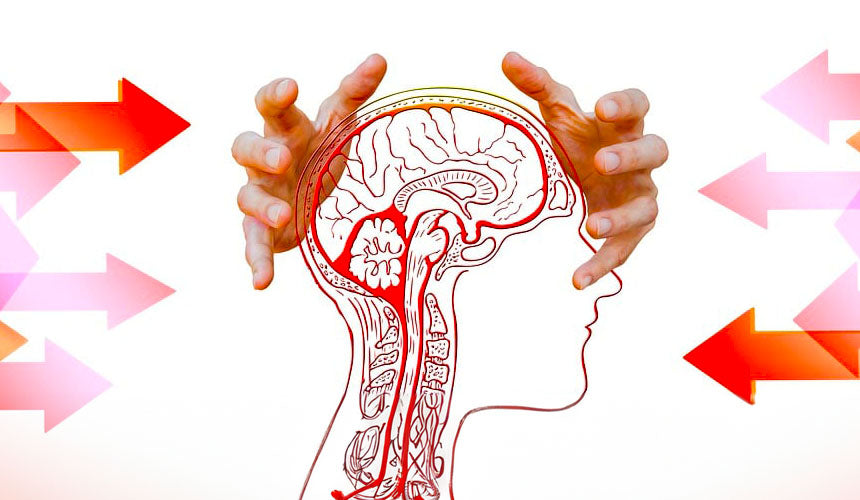** In the hustle and bustle of our modern lives, stress has become an uninvited guest that often overstays its welcome. It's no secret that stress can take a toll on our mental well-being, but did you know it also wields a sinister influence over our physical health?
In this article, we will dive into the science-backed reasons why stress is more than just an inconvenience – it's a silent assassin.
Prepare to be informed, persuaded, and motivated to take control of your stress for the sake of your physical health.
1. Stress: The Hidden Peril
Before we explore how stress wreaks havoc on your body, it's essential to understand what stress is.
Stress is your body's natural response to challenges and threats.
When you encounter a stressful situation, your body releases hormones like cortisol and adrenaline, preparing you to respond. In small, short bursts, this stress response can be helpful.
However, chronic stress, the kind that plagues our daily lives, can have devastating consequences.
2. The Body's Response to Chronic Stress
Cardiovascular System: Chronic stress can increase your heart rate and blood pressure, straining your cardiovascular system. Over time, this can lead to conditions like hypertension and an increased risk of heart disease (McEwen, 2007).
Immune System: Stress suppresses the immune system, making you more susceptible to infections and illnesses. It can also slow down wound healing (Cohen et al., 2007).
Digestive System: Stress can disrupt your digestive system, causing issues like irritable bowel syndrome (IBS) and exacerbating conditions like gastroesophageal reflux disease (GERD).
Weight Management: Stress triggers emotional eating and cravings for unhealthy foods, contributing to weight gain and obesity.
Musculoskeletal System: Tense muscles and muscle pain are common physical manifestations of stress. Chronic stress can lead to conditions like tension headaches and fibromyalgia.
3. The Mind-Body Connection
The mind and body are deeply interconnected, and stress bridges the gap. The constant activation of the body's stress response can lead to mental health issues like anxiety and depression, further exacerbating physical health problems.
4. Breaking Free: Why You Need to Manage Stress
Prevent Chronic Diseases: By managing stress, you reduce the risk of developing chronic diseases like heart disease, diabetes, and autoimmune conditions.
Boost Immunity: Lower stress levels bolster your immune system, helping you fight off infections more effectively.
Enhance Digestion: Improved stress management can alleviate digestive problems and promote a healthier gut.
Maintain a Healthy Weight: Stress management strategies can prevent stress-induced overeating and support weight management.
Reduce Pain: Relaxation techniques and stress management can alleviate musculoskeletal pain and headaches.
Here are 10 science-backed strategies and practices that getting incorporated into your daily routine can make a significant difference in managing and reducing stress levels:
Mindfulness Meditation: Engaging in mindfulness meditation, as supported by research (Cohen et al., 2007), can help reduce stress levels. This practice involves focusing on the present moment, which can alleviate anxiety and promote relaxation.
Regular Exercise: Physical activity has been shown to reduce stress and boost mood (McEwen, 2007). Aim for at least 150 minutes of moderate-intensity exercise per week, as recommended by health experts.
Healthy Eating: A balanced diet can mitigate the effects of stress. Consume whole grains, fruits, vegetables, and lean proteins while minimizing sugary and highly processed foods. This approach is supported by scientific studies (McEwen, 2007).
Adequate Sleep: Prioritize getting 7-9 hours of quality sleep each night (Cohen et al., 2007). Sleep is essential for stress recovery and overall well-being.
Social Connections: Building and maintaining strong social connections can help buffer the effects of stress (Cohen et al., 2007). Engage in meaningful relationships and seek support from friends and loved ones.
Stress Reduction Techniques: Practice stress-reduction techniques such as deep breathing exercises, progressive muscle relaxation, and yoga (Cohen et al., 2007). These methods can help activate the body's relaxation response.
Time Management: Effective time management can reduce stress associated with overwhelming schedules. Prioritize tasks, set realistic goals, and take breaks to prevent burnout (McEwen, 2007).
Limiting Caffeine and Alcohol: Excessive caffeine and alcohol intake can exacerbate stress. Moderation is key to managing these substances effectively (Cohen et al., 2007).
Seeking Professional Help: For persistent or severe stress, consider seeking help from a mental health professional. Therapy, counseling, and support groups can provide valuable guidance (Cohen et al., 2007).
Mind-Body Practices: Engage in mind-body practices like tai chi and qigong, which combine physical movement with relaxation techniques. These practices have shown benefits in reducing stress (McEwen, 2007).
The Bottom Line: A Healthier, Stress-Managed You
The evidence is clear: chronic stress takes a heavy toll on your physical health. It's time to recognize stress as the silent assassin it is and take proactive steps to manage it.
By adopting stress management strategies, you not only safeguard your mental well-being but also ensure a healthier, happier, and longer life.
Don't let stress hold you hostage – take back control and thrive.
References:
1. Cohen, S., Janicki-Deverts, D., & Miller, G. E. (2007). Psychological stress and disease. JAMA, 298(14), 1685-1687.
2. McEwen, B. S. (2007). Physiology and neurobiology of stress and adaptation: Central role of the brain. Physiological Reviews, 87(3), 873-904.

